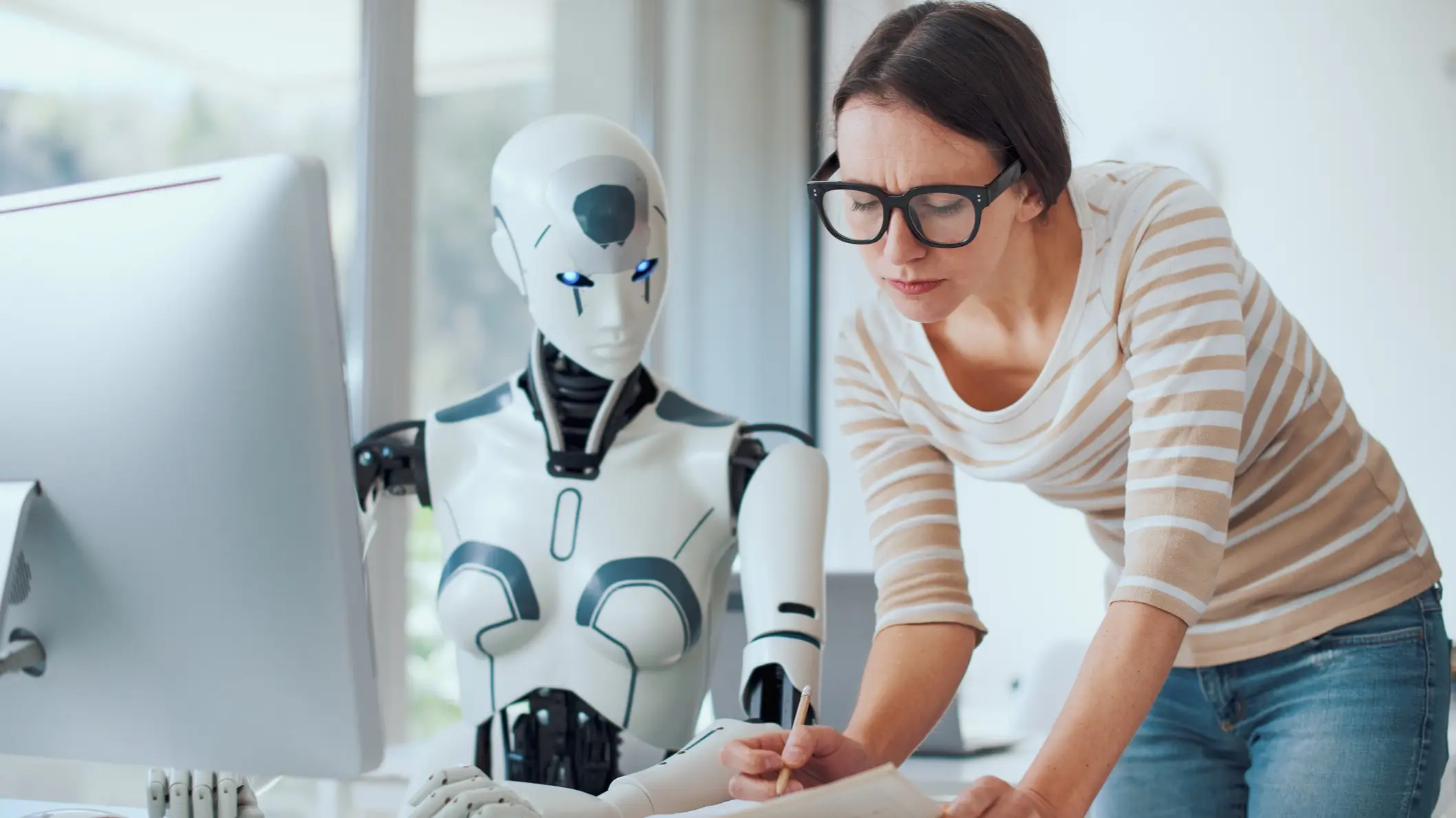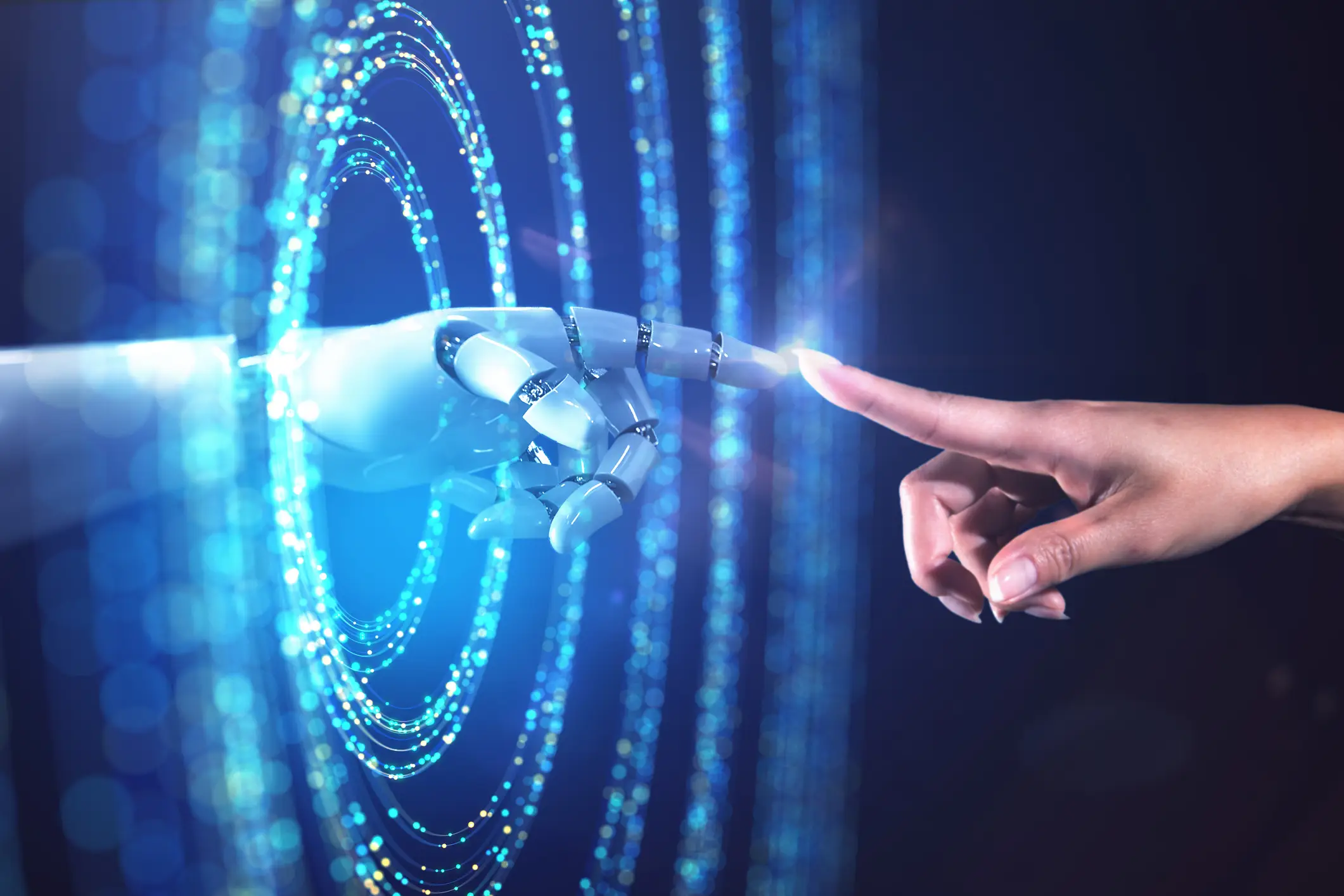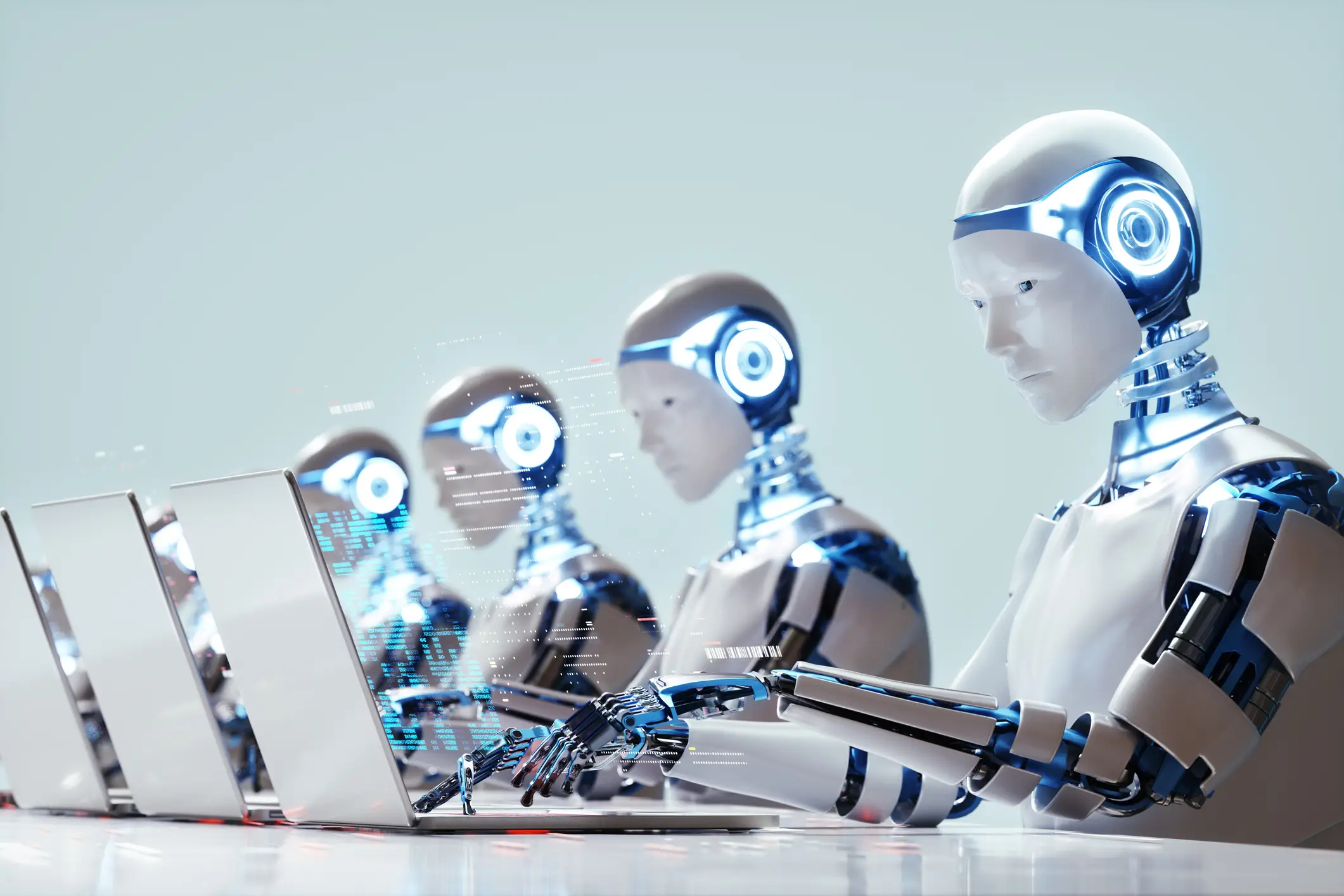
Experts have identified the desirable skill sets that could save you from being replaced in your job by artificial intelligence.
By now, I shouldn't have to tell you that AI is rapidly accelerating us into a world previously only imagined on screen.
In recent weeks we've seen warnings about superhuman robot armies, discussions about the ethics of romantic relationships with an artificially generated partner, and even AI systems that would be willing to let humans 'die' in order to avoid being shut down.
Add this to the fact that AI is rendering jobs across numerous sectors null and void, and we're looking at a future where very few of us will have stable employment.
Advert
Fancy hanging on to your job for as long as possible? Here are the skills and sectors that you need to be focusing on before it's too late.

Brush up on your tech skills
According to a recent report from Business Insider, the technology industry isn't immune from the AI revolution, however, there are certain skill sets that could see you survive the chop.
Citing survey data from Indeed, the outlet reveals that job fields such as cybersecurity, data analytics, and AI integration teams remain in need of human brainpower.
Meanwhile, it'll become harder to land an entry level job in the field, with project managers and software developers also feeling the pinch.
Prioritising your skillsets will also put you a step ahead of other candidates, with employers looking for applicants who posses skill clusters such as:
- Python, machine learning, and data analysis
- AWS, DevOps, and continuous integration and continuous delivery (CI/CD)
Hone your empathy and curiosity
For those of us who aren't tech gurus or master coders, a focus on what makes humans distinguishable from AI is favoured.
When asked about how to 'AI-proof' yourself in the coming years, economist Linda Nazareth explained that we need to be looking at qualities that a machine cannot replicate.

"Resilience, creativity, empathy, motivation and self-awareness, curiosity, service orientation, and teaching and mentoring," she said, when asked about our best defence against AI.
"Developing these skills gives you a little bit of armour against all the changes ahead."
She also revealed concerns about how AI would impact employment more generally, revealing that a shrinking market for entry level jobs would make it harder to get a foot on the employment ladder.
Nazareth isn't the only expert concerned about this either, with Dr Roman Yampolskiy warning that we could see artificial general intelligence as soon as 2027, which means it would 'make no sense to hire humans for most jobs'.
Topics: AI, Artificial Intelligence, Technology, Jobs